Epica's Mark Jansen: the 10 records that changed my life
Symphonic metal guitar star on the albums that shaped the band's sound
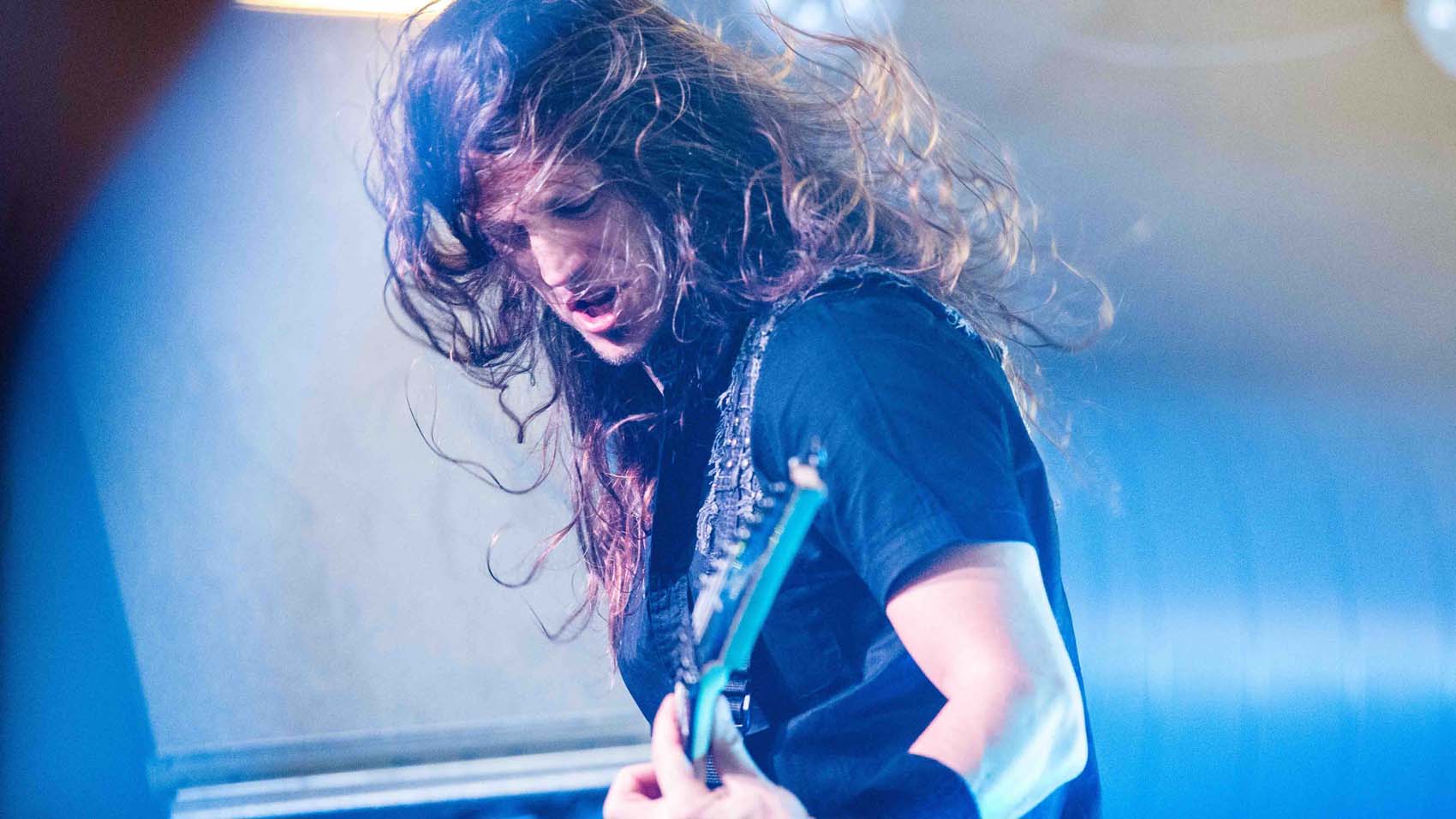
The Holographic Principle
“It’s always a challenge to create enough parts for all the instruments without making the song too full,” admits Epica founder/guitar Mark Jansen.
This year, the Dutch symphonic metallers will be releasing their seventh full-length, entitled The Holographic Principle, and while it’s clear the band have long found the formula that works for them, they’ve remained ambitious enough to continually set the bar higher and, even more miraculously, without overplaying.
“Sometimes we’ll make a riff less complicated purely for the song,” continues Jansen.
You could call this album a quest for balance!
“There is always a fine balance between the orchestral parts, all the melodies going on there, and then the guitar riffing, the groove on drums and bass… it’s a continuous search for balance. Especially in a band like Epica, where there’s so much going on. You could call this album a quest for balance!
“We actually recorded everything live, which we haven’t done much of in the past. We had done choirs and string sections, but this was everything you could imagine – brass, woodwind, ethnic percussion. Even a sitar player came along to do his parts with us!”
As for his own development, Jansen points out how a recent discovery in his picking approach helped him understand why he wasn’t able to play as fast as he wanted.
He found it took another pair of eyes to analyse his playing and detect the inaccuracies and weaknesses he was naturally oblivious to…
“On this new album, I’ve been trying out new picking techniques,” he nods.
I spoke to someone who had been playing for over 30 years, asking him to look at my technique and see if there were areas to improve
“I spoke to someone who had been playing for over 30 years, asking him to look at my technique and see if there were areas to improve. It turns out I was using my pinky the whole the time to mute the strings, which was also slowing me down when it came to faster melodies.
“So he advised me to focus more on the picking than the muting, which is something I’d never really thought about myself, even after all these years!”
The guitarist admits the revelation was probably symptomatic of following his natural instinct since early on, rather than any rigid guitar schooling…
“I’m a self-taught guitar player,” he reasons.
“I came from the idea of playing along to the music I liked. That’s always helped a lot - I started out with Iron Maiden songs because they were a lot of fun. From there, I went to different styles and faster stuff.
“There are a lot of tutorials online for self-study, and plenty of good teachers that can help you play what you want. When I was 16, I had a teacher that made me learn really boring songs so I quit having lessons… they were no fun for me.
“Now, I think if you find the right teacher and the right music, it can be fun for everybody.”
Here, the Epica founder talks us through the 10 albums that changed his life…
The Holographic Principle is out on 30 September via Nuclear Blast.
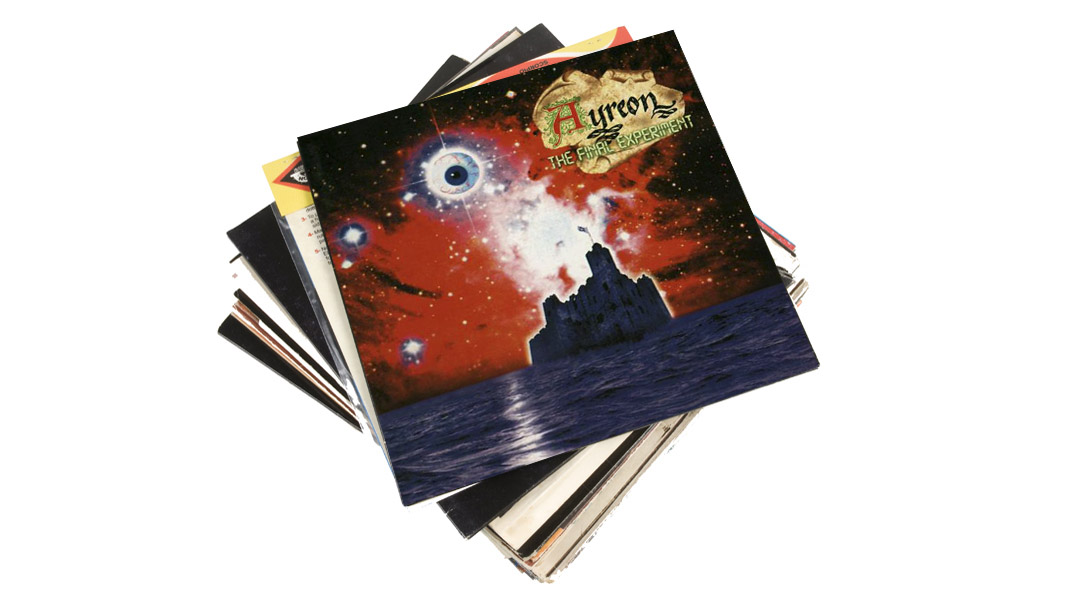
1. Ayreon - The Final Experiment (1995)
“I remember exactly where I was when I first heard this: in my bedroom at my parent’s house. I had read a review in a magazine that gave it 10 out of 10, so I figured I should just order it. And the first time I heard it, I actually thought the album sucked, haha!
“I thought it was a waste of money, but I gave it another spin, liking it more every time I played it. And now it’s become one of my most played albums ever made.
The first time I heard it, I actually thought the album sucked!
“You keep hearing new things in it, and I tend to like the records you can discover more in over time. It had all these different singers - it was like an opera.
“Arjen Anthony Lucassen must have worked for a really long time on it. I’ve met him a few times, and he’s always interested in what Epica are doing, as I am to hear of what new steps he’s been taking. On this album, everything came together perfectly.”
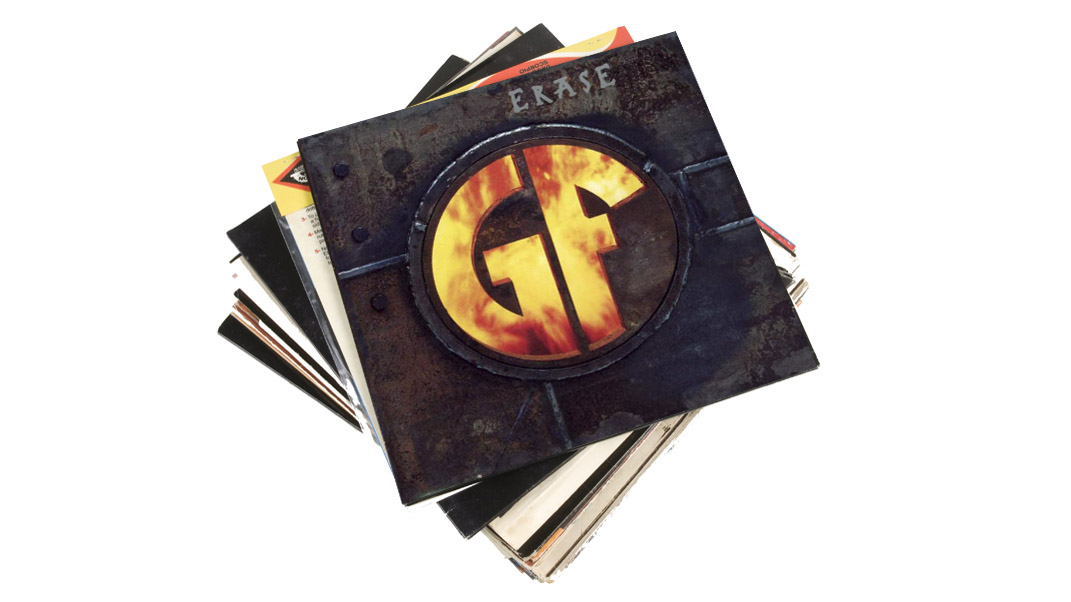
2. Gorefest - Erase (1994)
“I used to watch Headbangers Ball on MTV when I was about 14 years old. Sometimes I’d record it, but I usually preferred to watch it live. And one night I remember seeing the video for the song Erase, which was so dark and moody, especially considering how young I was at the time…
“I loved how it was shot in black and white while showing a band at the high point of their career. I instantly saw that and thought, ‘I must have this album!’ so I bought it and couldn’t stop playing it at home. And I still love it – there’s just so much energy in the music - it’s so tight and powerful.”
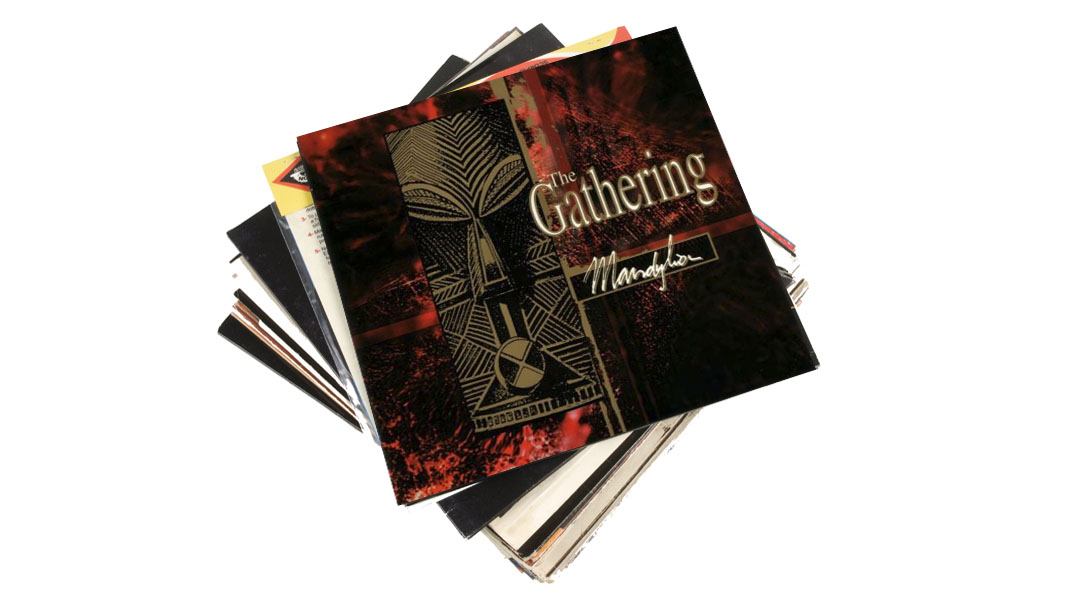
3. The Gathering - Mandylion (1995)
“This is the first album they made with Anneke Van Giersbergen on vocals, and is probably the record that made me realise it was possible to combine female vocals with metal music. Before that, no-one had really been doing it - of course there was Doro, but nothing in this specific style.
“There’s a huge doomy side to this album that really helped me get into making these kinds of sounds, which I started exploring in After Forever and later on with Epica. So it’s definitely an album that changed my life.”
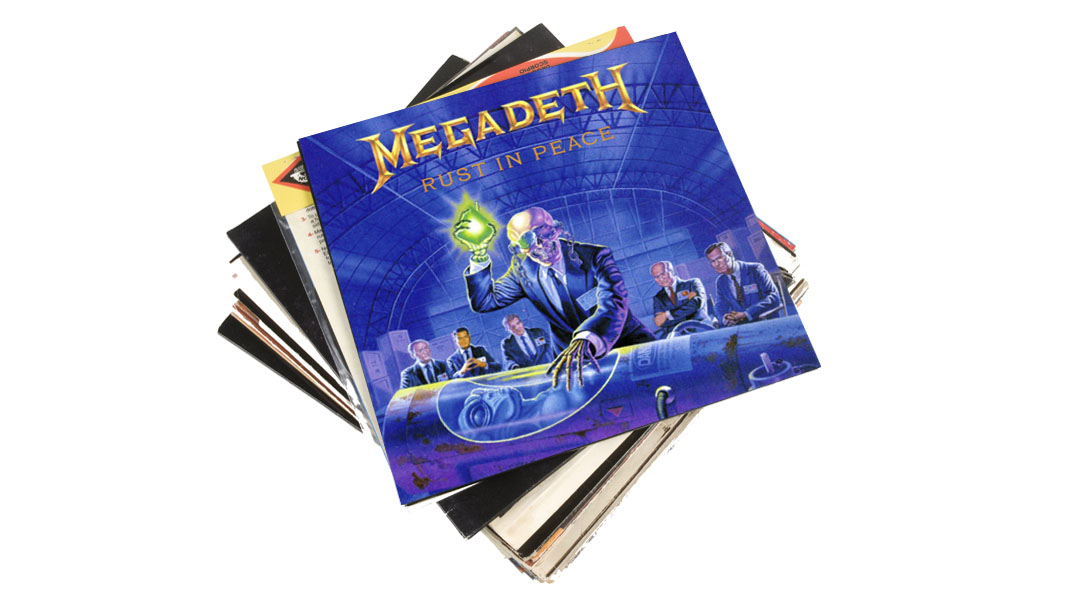
4. Megadeth - Rust In Peace (1990)
“I went to the record store in my hometown and there was a little metal section. I was looking at all the albums and one just stuck out purely because of its cover! It was Rust In Peace, though I had no idea what the music was like.
“As it turns out, I hadn’t ever quite heard anything that heavy… I was blown away from the first riff. I’ll never forget sitting there with goosebumps listening to Holy Wars… The Punishment Due thinking, ‘Yes! This is my kind of music, this is what I like!’
I hadn’t ever quite heard anything that heavy… I was blown away from the first riff
“They were the first metal band I got into. I remember reading the booklet and seeing which solos were played by Marty Friedman, which in my opinion were the best! He was very important for Megadeth.
“In recent years, they’ve released albums that haven’t come close to this masterpiece, but I’m glad to see their last album carries a lot of the old energy they had on Rust In Peace.”
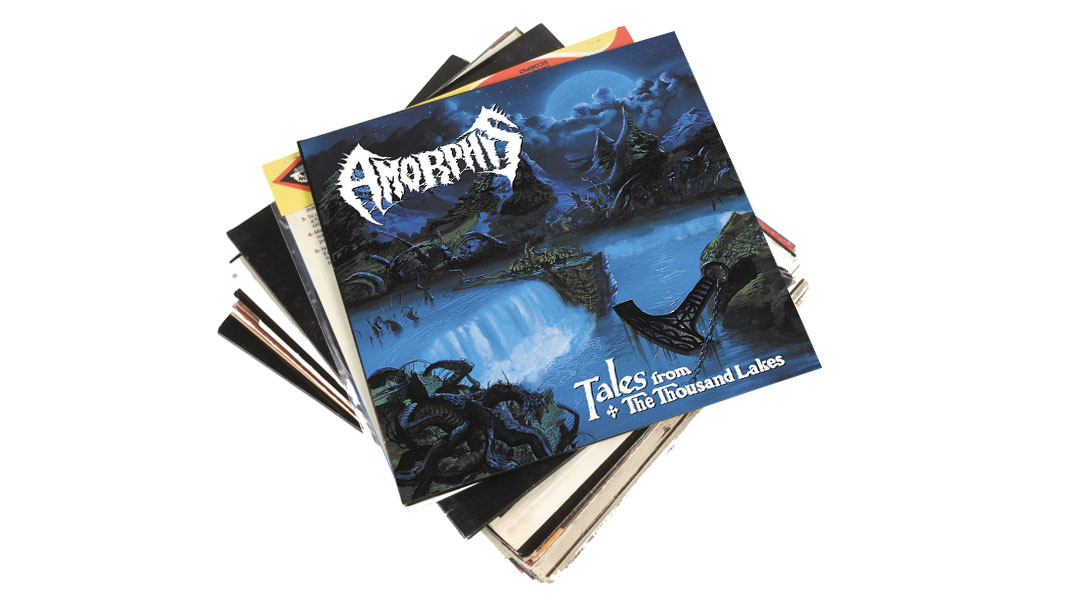
5. Amorphis - Tales From The Thousand Lakes (1994)
“After getting into Megadeth, I bought lots of metal albums by bands like Anthrax, and continued searching for heavier stuff. In the same record store, Tales From The Thousand Lakes had a cover that fascinated me - I had to find out more…
“I asked the guy in the store if I could listen to it on their headphones. I loved the piano and all the atmosphere that comes in, and then the guy started growling! And I didn’t like those types of vocals, so I was a bit disappointed but I bought it anyway.
“As it turns out, I started appreciating those growls more and more. It was a life-changing album - now, because of Amorphis, I’m doing it myself!”
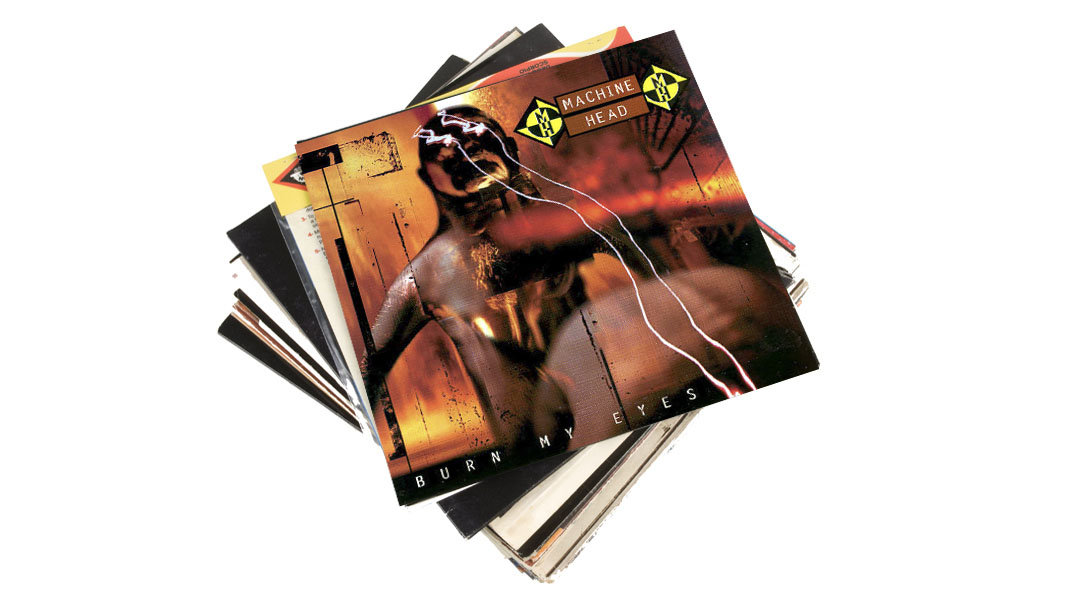
6. Machine Head - Burn My Eyes (1994)
“I actually own two CDs of this classic! Again, I saw the Davidian video on Headbangers Ball, and presenter Vanessa Warwick announcing the band as: ‘burn your eyes but don’t burn your ears!’ Then she played Davidian, which sounded like a masterpiece to me. I needed to get the album right away…
“But it was late and I had to wait for the record store to open the next day - let’s say the night was very long for me! I finally got it and a little later I created some Machine Head artwork which I entered into a competition which, believe it or not, I won third place in. My prize was a copy of the album… but I already had it, of course!”
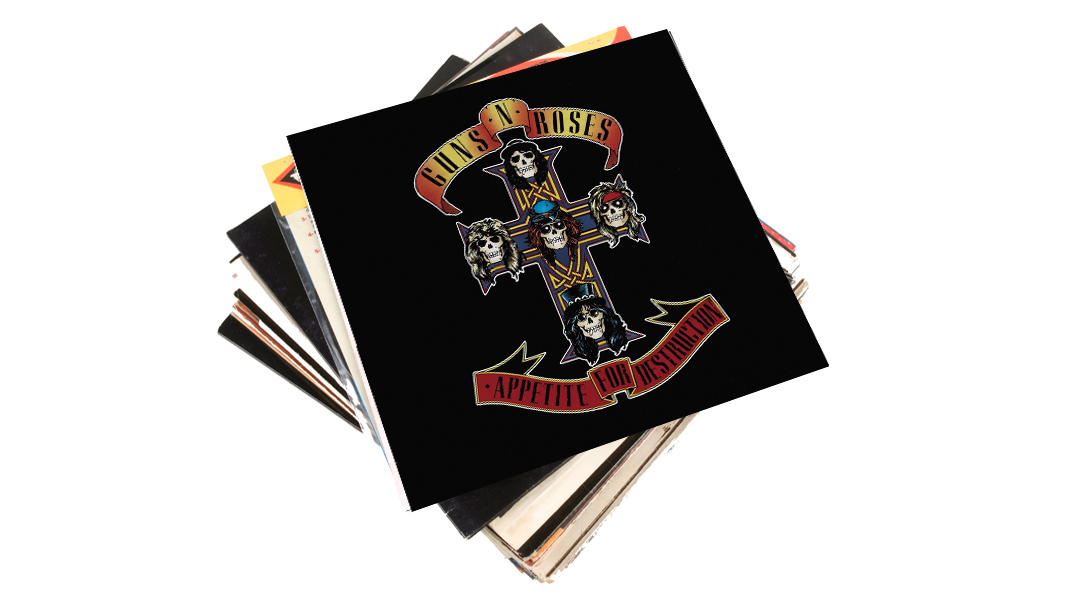
7. Guns N' Roses - Appetite For Destruction (1987)
“I always loved Slash for the Gibson Goldtop, the long hair and the hat. My father was the one who introduced me to Guns N’ Roses.
“I was already a fan of Slash - he was a huge idol to me and a big reason why I ended up playing guitar myself. Before this, I was listening to softer music like Top 40 stuff on the radio, but when my dad came home with this album, it became the start of listening to heavier music.
Without this album, maybe I never would have ended up in a metal band!
“It was at a crucial time in my life… who knows, without this album, maybe I never would have ended up in a metal band! The energy they had was so special - they were trashing hotel rooms and always in the news.
“I was fascinated by that stuff, and though I’ve never trashed a room myself, as a young kid, I thought it was cool.”
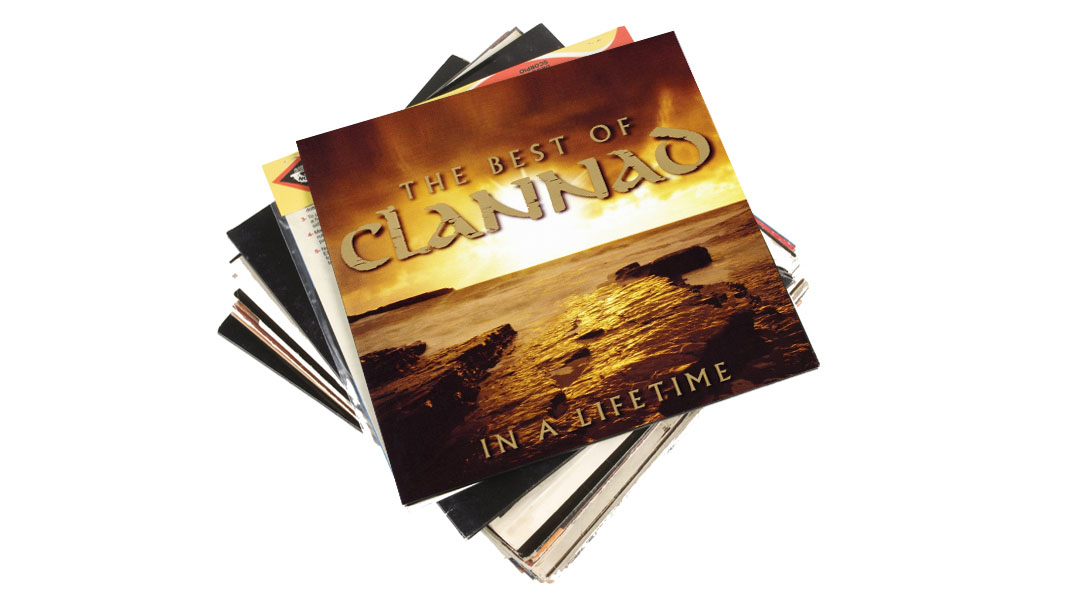
8. Clannad - The Best Of Clannad: In A Lifetime (2003)
“When I was younger, my favourite series on TV was Robin Of Sherwood, and Clannad wrote the title track Robin (The Hooded Man). It’s very sentimental for me - I listen to it at least once a month when I want to relax. I find it puts me in a nice state of mind.
“I couldn’t pick a specific album, as there are many which have great songs, so I went for the best of with all the classics combined. That’s what I usually play myself!
It’s very sentimental for me - I listen to it at least once a month when I want to relax
“My favourite track is hard to pronounce - it’s called Caislean Oir, a very mystical and choir-led track. It’s fascinated me greatly since I first heard it, and I still think it’s the most ethereal pieces I’ve heard in my life.
“Not long ago, I visited Mexico and went to the old Mayan ruins with this playing on my iPod. I had goosebumps all over my arms!”
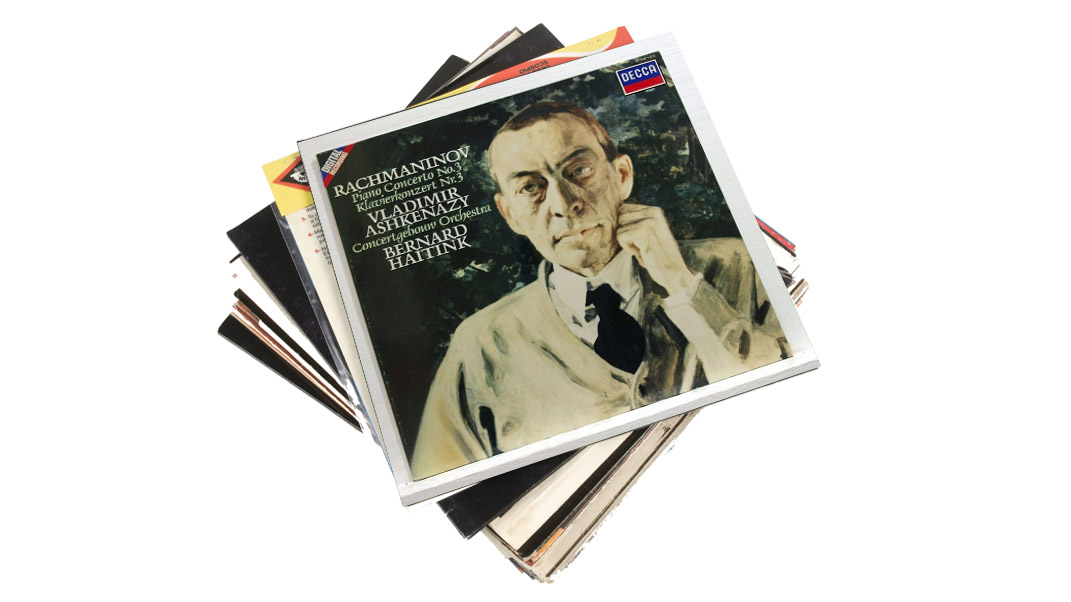
9. Rachmaninoff - Piano Concerto No. 3 (1909)
“The third piano concerto - they call it Rach III for short - is my favourite piece of classical music. It’s important to remember Epica is partly an orchestral band; we are very inspired by that kind of music… but definitely not the cheesy side of that music.
“Rachmaninoff composed really dark classical pieces. It took me a while to get into - when I was younger I always felt it was too complicated and hard to understand, but I’ve found as I’ve gotten older, I’ve started appreciating it more and more.”
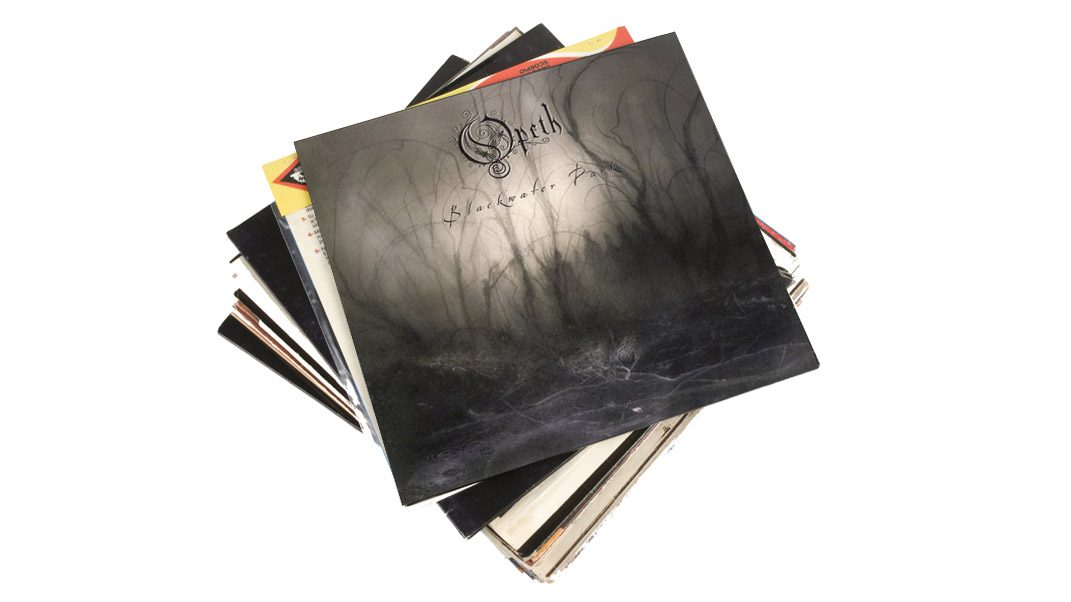
10. Opeth - Blackwater Park (2001)
“There had to be an Opeth album in this list! Just when I thought nothing else could surprise me in the metal scene, these guys came along. I actually didn’t know about them for a long time, but once I discovered them, I was completely blown away.
“I chose this album because I love it as a whole - my favourite Opeth track is actually on another album, the title track off Deliverance, but Blackwater Park would have to be my favourite album.
In 50 years, people will look back on Opeth and value them with a lot more recognition than they have now
“It’s actually very hard to choose just one thing by a band that have so many great records. I still think they are incredibly underrated. In 50 years, people will look back on Opeth and value them with a lot more recognition than they have now. They are one of the best in the history of heavy music.”
Amit has been writing for titles like Total Guitar, MusicRadar and Guitar World for over a decade and counts Richie Kotzen, Guthrie Govan and Jeff Beck among his primary influences. He's interviewed everyone from Ozzy Osbourne and Lemmy to Slash and Jimmy Page, and once even traded solos with a member of Slayer on a track released internationally. As a session guitarist, he's played alongside members of Judas Priest and Uriah Heep in London ensemble Metalworks, as well as handling lead guitars for legends like Glen Matlock (Sex Pistols, The Faces) and Stu Hamm (Steve Vai, Joe Satriani, G3).
